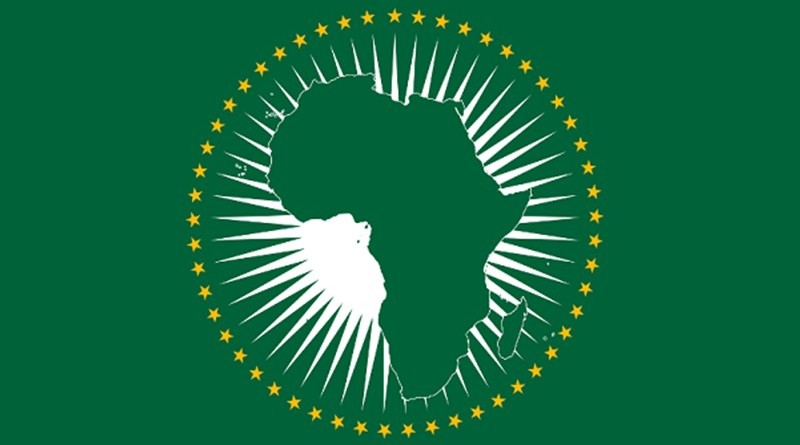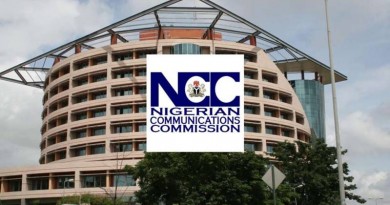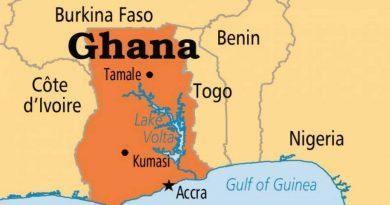African ministers adopt “Cairo Declaration” on boosting continent’s Infrastructure
Ministers from 39 African countries have confirmed their commitment to consider strategies for developing smart infrastructure to boost Africa’s continental transformation and integration, by adopting the Cairo Declaration and Action Plans for the Transport, Energy and Tourism sectors.
The Declaration was adopted at the Second Ordinary Session of the African Union Specialized Technical Committee meeting on Transport, Transcontinental and Interregional Infrastructure, Energy and Tourism (STC-TTIIET), which kicked off Sunday in Cairo, Arab Republic of Egypt under the theme “Developing SMART Infrastructure to boost Africa’s Continental Transformation and Integration.”
Culminating a four-day meeting, the Declaration calls for Member States and Regional Economic Communities to strengthen inter-African and continental cooperation in the development of infrastructure. Given, the transformative nature of digital technologies, and the frequency and severity of climate-induced disaster on the continent, member States were requested to promote smart as well as climate resilient infrastructure.
Addressing the Ministerial Segment of the event, the Minister of Electricity and Renewable Energy of the Arab Republic of Egypt, H.E. Dr. Mohamed Shaker El Markabi said “I am honoured to have hosted this second meeting of the African Union Specialized Technical Committee meeting on Transport, Transcontinental and Interregional Infrastructure, Energy and Tourism (STC-TTIIET), which will support the integration of the continent.
The Minister highlighted Egypt Vision 2030, which is the roadmap that will shape the future to which the country’s citizens aspire.
To achieve Egypt Vision 2030, and all of the goals outlined by Vision 2030, the minister stresses “cooperation between countries, development partners, AUC is required in order to move forward.”
The declaration also urged the African Union Commission and the African Union Development Agency (AUDA-NEPAD) to fast-track the development of the second phase of the Programme for Infrastructure Development in Africa (PIDA PAP 2) integrating gender and youth dimensions, which should be submitted for adoption to AU organs by January 2021and to prioritise the launch of the African Network for Women in Infrastructure (ANWIn).
In her closing remarks, African Union Commissioner for Infrastructure and Energy, H.E. Dr. Amani Abou-Zeid, conveying her appreciation and gratitude to the President of the Arab Republic of Egypt and Chairperson of the African Union, H.E. Mr. Abdel Fattah Saeed Hussein Khalil El-Sisi for hosting the event, said it was clear from the declaration of the depth of the discussions that were held on key issues in the sectors of transport, infrastructure, energy and tourism.
“The adoption of the Declaration of Cairo shows the collective endorsement and consensus for infrastructure development as an impetus for the regional integration of the continent. Cooperation and partnerships among multiple countries with different core competencies are vital to boost continental transformation,” the Commissioner stated.
Member States were also requested to speed up ratification of pending legal instruments related to infrastructure, notably the Maritime Charter, Yamoussoukro Declaration, the Single African Air Transport Market, and Road Safety Charter.
Speaking earlier on behalf of the President of the African Development Bank, Dr. Akinwumi Adesina, the Director for Infrastructure and Urban Development, Mr. Amadou Oumarou underscored that the key priorities of the STC Agenda align with the Bank’s Strategic priorities – the High 5s, which prompted the financing of a number of projects within PIDA and beyond the framework fulfilling the objectives of this Specialized Technical Committee.
“I reaffirm the Bank’s commitment to work with all stakeholders in the preparation of the second phase of PIDA” Mr. Oumarou noted, “which will require concerted efforts to come up with transformative priorities that will have the desired impact on regional economic development, jobs creation, and opportunities for all”.
On her part, the Minister of Infrastructure and Transport the Togolese Republic and outgoing Chair of the STC, H.E Ms. Zouréhatou Tcha-Kondo épse Kassah-Traoré, gave an overview of the activities of the STC Bureau since the last session of the STC. She informed the meeting that the STC Sub-Committees had all met to review the implementation of the STC Plan of Action under the different sectors. She underscored the importance of the Programme for Infrastructure Development in Africa (PIDA) and called upon all Member States to support it as the programme plays a big role in the economic integration and development of the continent.
The meeting, organized by the African Union Commission jointly with the Government of the Arab Republic of Egypt, the African Development Bank (AfDB), the African Union Development Agency (AUDA-NEPAD) and the UN Economic Commission for Africa (ECA), drew over 400 participants from 39 AU Member States, Regional Economic Communities, the regional development banks and financial institutions, the continental specialized organizations, academia, private sector and civil society, and representatives from the development partners and international organizations involved in energy, transport and tourism.
The weeklong event, included an Experts’ meeting and a Ministerial session. It also featured a soft launch of the African Network for Women in Infrastructure (ANWIn), spearheaded by Commissioner Abou-Zeid.
The outcomes of the Second Ordinary Session of the STC-TIIIET will be submitted for adoption by the African Union Assembly of Heads of State and Government at its Ordinary Session in July 2019.




